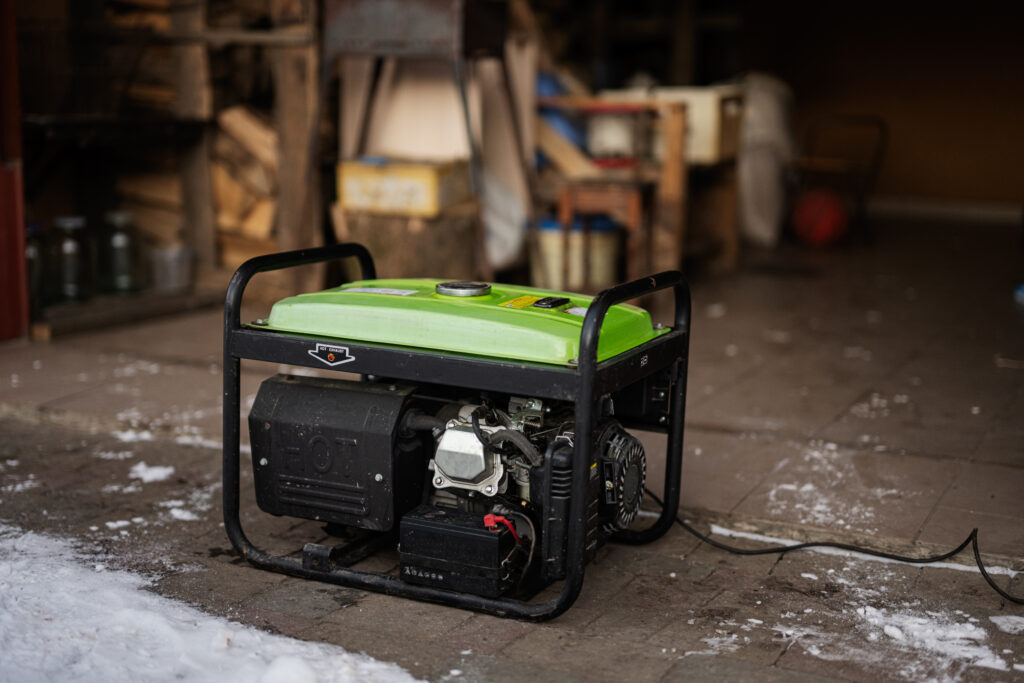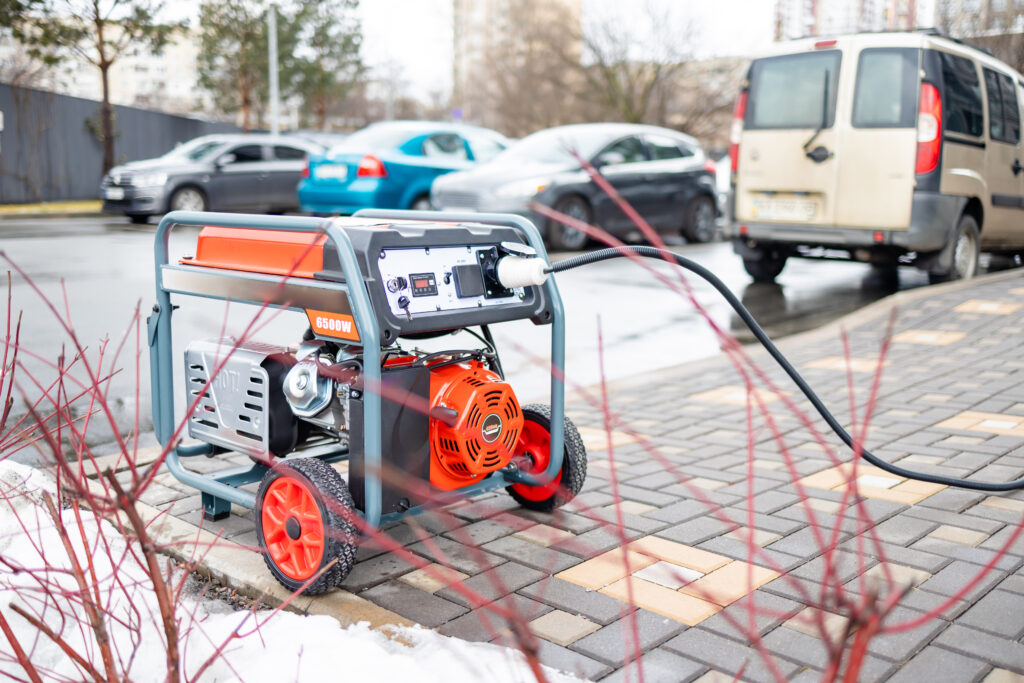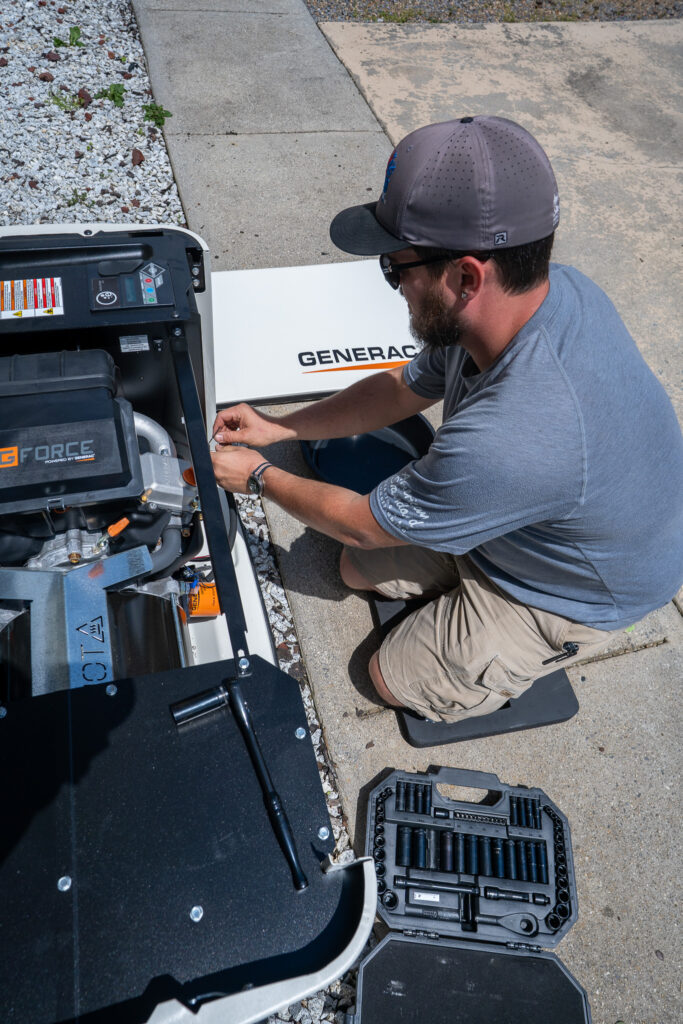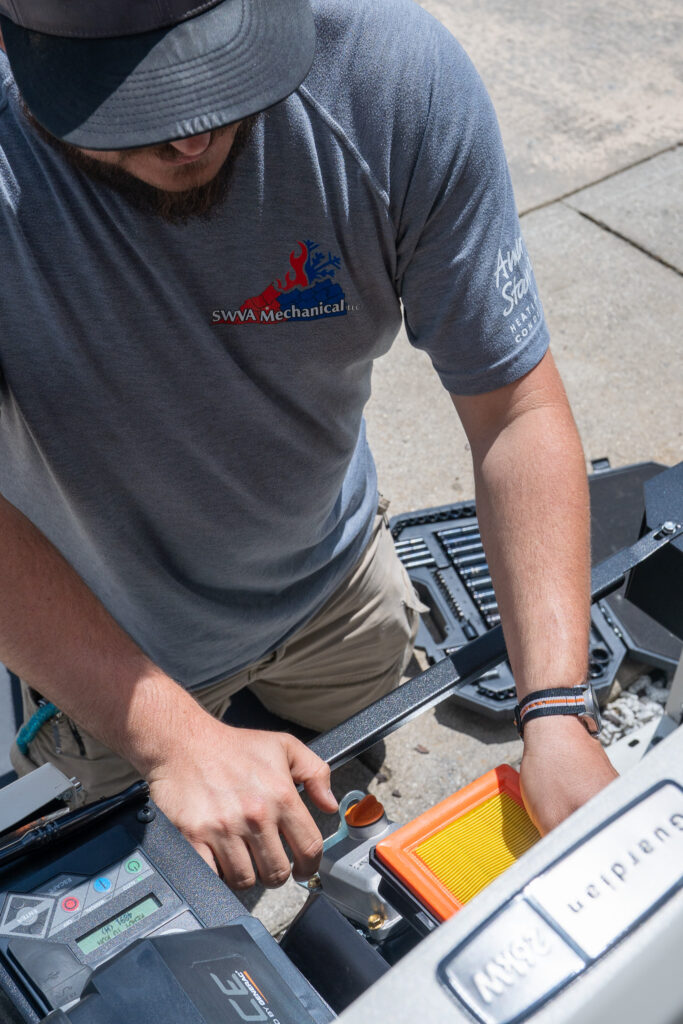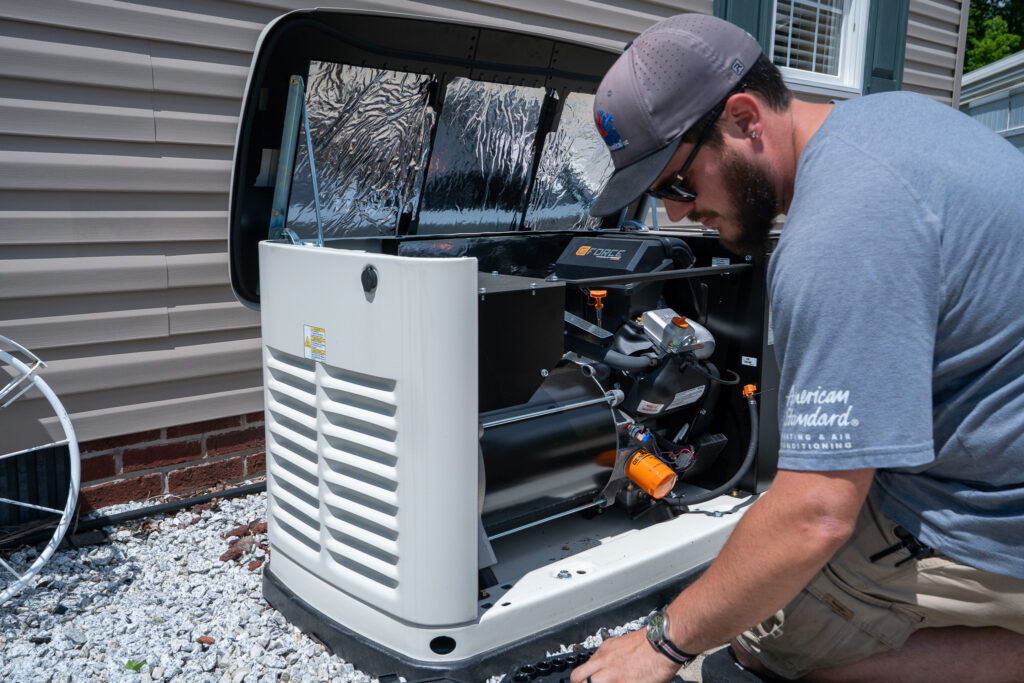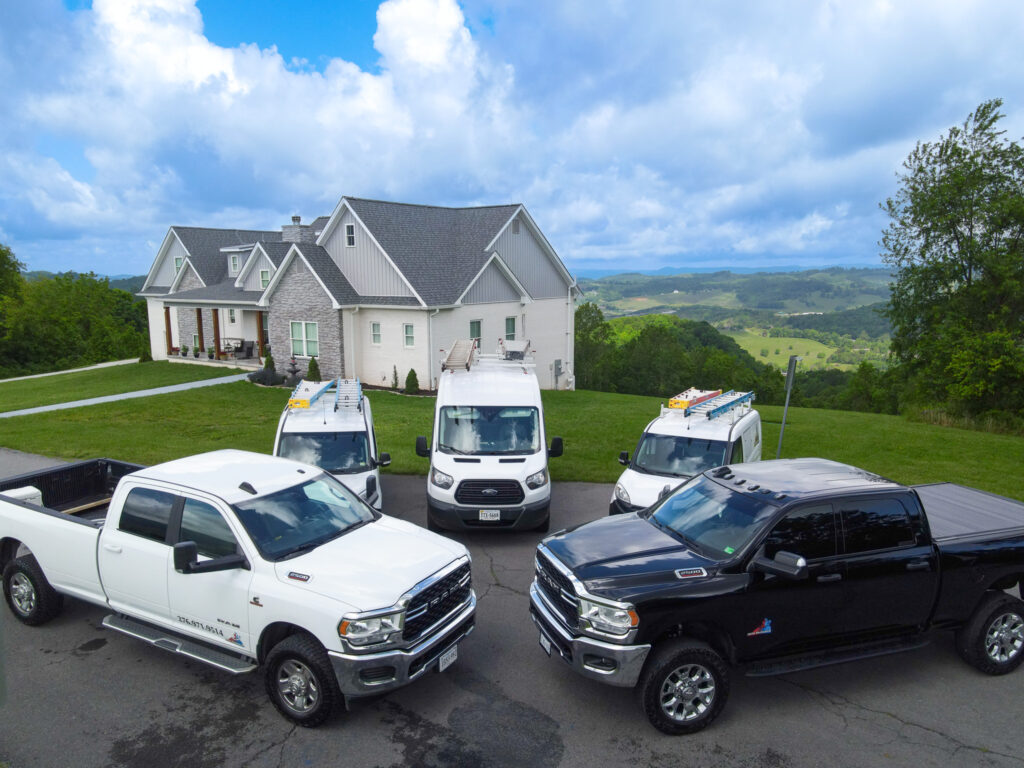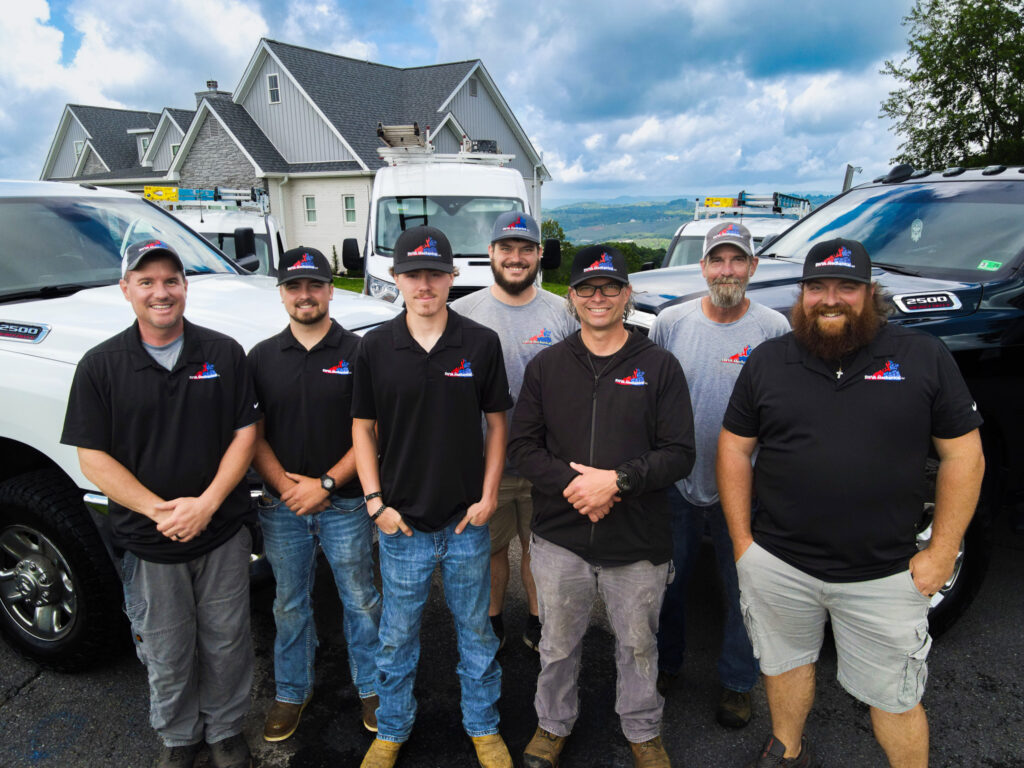In our modern, connected world, a sudden power outage can bring life to a grinding halt. From keeping food fresh in the refrigerator to powering essential medical equipment, a stable supply of electricity is something we often take for granted until it is gone. Here in Southwest Virginia, power outages are a reality we face due to a variety of causes, including severe thunderstorms in the summer, heavy ice and snow storms in the winter, and other unforeseen grid issues. When the power goes out, having a reliable backup plan is not just a matter of convenience; it is a matter of safety and security for your family and home.
The good news is that there are excellent backup power solutions available. The two main options for homeowners are portable generators and standby generators. Each type serves a distinct purpose and comes with its own set of benefits and considerations. Choosing the right one depends entirely on your specific needs, budget, and lifestyle. This guide will break down the differences between portable and standby generators to help you make an informed decision and ensure you are prepared the next time the lights go out.
What Is a Portable Generator?
A portable generator is a compact, mobile power source designed to provide temporary electricity during an outage or in a location without access to the power grid. As the name suggests, its key feature is its portability. These units are self-contained, typically built with wheels and a handle, allowing them to be moved where they are needed and stored away when not in use. Portable generators run on gasoline, diesel, or propane, which must be stored safely and added manually as needed. They are started manually, either with a pull-cord or an electric push-start button, and power is delivered by running extension cords from the generator directly to the appliances you wish to run.
The primary use for portable generators is to provide essential power during short-term outages. They are also popular for recreational activities like camping and tailgating, as well as for providing power on job sites for tools and equipment. In a home emergency, a portable generator is intended to power a few critical items, such as a refrigerator, a freezer, some lights, and a phone charger, rather than the entire house.
Pros of Portable Generators
The most significant advantage of a portable generator is its lower upfront cost. These units are far more affordable than their standby counterparts, making them an accessible entry point into backup power for many homeowners. Their price point makes them a practical choice for those who experience only infrequent, short-lived power outages and cannot justify the larger investment of a permanently installed system.
Another major benefit is their flexibility and mobility. You can easily move a portable generator from your garage to a safe operating location in your yard. This portability also means you can take it with you on a camping trip, to an outdoor event, or to a remote job site, making it a versatile tool beyond just home emergency use. When the power is restored, it can be stored neatly in a garage or shed, taking up minimal space. During an outage, a portable generator can be a true lifesaver, providing enough power to keep your refrigerator cold, run a few lights, and keep your essential communication devices charged, preventing food spoilage and maintaining a basic level of comfort and safety.
Cons of Portable Generators
Despite their advantages, portable generators come with significant limitations. Their power output is limited. You will have to pick and choose which essential appliances to run, and they typically cannot handle large central systems like an air conditioner, a furnace, or a well pump. This means that while you can save your food, you will not be able to maintain your home’s overall climate or access running water if you have a well.
The manual nature of portable generators is another major drawback. During a storm or outage, you must physically move the heavy unit outside to a safe distance from your home (at least 20 feet away from any doors or windows to prevent carbon monoxide poisoning), start it, and run multiple heavy-duty extension cords into your house. You also need to have a fresh supply of fuel on hand and be prepared to refuel it every few hours, often in inclement weather. Finally, portable generators are notoriously loud, which can be a nuisance to both you and your neighbors. They also require more frequent maintenance, including oil changes and fuel system checks, to ensure they will start when you need them.
What Is a Standby Generator?
A standby generator, often called a whole-home generator, is a permanent, automatic backup power solution. Unlike a portable unit, a standby generator is professionally installed on a concrete pad outside your home, much like a central air conditioning unit. It is connected directly to your home’s electrical panel through an automatic transfer switch (ATS). This is the “brain” of the system. The generator is also connected directly to your home’s natural gas or propane supply, eliminating the need for manual refueling.
The primary purpose of a standby generator is to provide seamless, reliable, and comprehensive power during an outage. When the ATS detects a loss of power from the utility grid, it automatically disconnects your home from the grid and signals the generator to start. Within seconds, the generator is up to speed and begins supplying power to your entire electrical panel. You do not have to do anything. This whole-house coverage ensures that your life can continue with minimal disruption, keeping everything from your lights and HVAC system to your security system and well pump running smoothly.
Pros of Standby Generators
The single greatest benefit of a standby generator is its automatic, hands-off operation. When the power goes out, whether you are at home, at work, or on vacation, the system takes care of everything for you. Within seconds, your power is restored so seamlessly that you might not even notice an outage occurred. This provides unparalleled peace of mind, especially for families with young children, elderly members, or individuals who rely on powered medical equipment.
A standby generator has a much higher power output than a portable unit. It is capable of running your entire home, not just a few select appliances. This means your air conditioner will keep running on a hot summer day, your furnace will keep you warm during a winter ice storm, and your well pump will continue to provide running water. Life inside your home continues as normal. Standby generators are also significantly quieter than portable models and are enclosed in a weather-protective casing. They run on a cleaner, more stable fuel source and perform weekly self-diagnostic tests to ensure they are always ready, requiring far less hands-on maintenance from the homeowner.
Cons of Standby Generators
The most significant consideration for a standby generator is its higher upfront cost. The equipment itself is more expensive, and the price includes the automatic transfer switch and professional installation, which is not a DIY project. This investment can be substantial, placing it out of budget for some homeowners. However, for those in areas with frequent or long-duration outages, the cost can be justified by the reliability, safety, and protection it provides for their home and family.
Because it is a permanent fixture, a standby generator requires a dedicated space outside your home and must be installed by licensed professionals to meet all local codes and safety standards. This installation is a complex process that involves electrical wiring and plumbing for the fuel connection. Finally, unlike a portable generator, a standby unit is not portable. It is a permanent appliance dedicated solely to providing backup power for your home or business.
Portable vs. Standby Generators: Key Factors to Consider
Choosing between these two options requires a careful evaluation of your specific situation. Here are the key factors to consider:
- Power Needs: The first step is to determine how much power you truly need. Make a list of the essential items you cannot live without during an outage. For some, this might just be the refrigerator, freezer, and a few lights. For others, essentials may include a well pump, a sump pump, a central HVAC system, or critical medical devices. A portable generator can handle the first scenario, but the second requires the much larger capacity of a standby generator.
- Frequency of Outages: How often does the power go out in your area of Lebanon, and how long do outages typically last? If you experience only one or two brief outages a year, the inconvenience of setting up a portable generator may be acceptable. However, if your home is subject to regular or multi-day outages due to its location, the automatic and long-running capability of a standby generator becomes increasingly valuable.
- Budget: Your budget will play a major role in your decision. A portable generator represents a much smaller initial investment. A standby generator is a significant long-term investment in your home’s infrastructure. When considering the budget, think about the total cost of ownership, including fuel costs for a portable unit and the potential costs of spoiled food or hotel stays during a long outage.
- Convenience: How important is convenience to you? Are you comfortable with the manual labor involved in setting up, starting, and refueling a portable generator, possibly in bad weather? Or do you prefer a solution that works automatically without any effort on your part? For homeowners who may not be home when an outage occurs or who have physical limitations, the automatic convenience of a standby generator is a critical safety feature.
- Space and Storage: Do you have a secure, well-ventilated space to store a portable generator and its fuel? Do you have a suitable location outside your home to permanently install a standby generator that complies with local codes for distance from windows and property lines? These logistical considerations are important for both options.
Which Generator Is Right for You?
The right choice ultimately comes down to a match between the generator’s capabilities and your needs.
A portable generator is likely the right choice for you if you are on a tighter budget, experience infrequent power outages, and only need to power a few essential items like your refrigerator and some lights. It is also the ideal solution for renters or those who value the flexibility of being able to use their generator for recreational purposes.
A standby generator is the clear winner if you live in an area with frequent or long-lasting power outages, if you need to power your entire home including central air, heat, or a well pump, or if you have family members who rely on powered medical devices. It is the best option for homeowners who prioritize seamless, automatic operation and the peace of mind that comes with knowing their home is always protected, whether they are there or not.
Choosing and installing a generator is a decision that impacts your family’s safety and comfort. It is important to get it right. If you are unsure which solution best fits your needs, the best next step is to consult with a local expert.
At SWVA Mechanical, we have years of experience helping homeowners in Lebanon, VA, and the surrounding communities select and install the perfect backup power solutions. We can provide a thorough evaluation of your home’s power needs, explain your options clearly, and offer a free consultation to help you make a confident choice. From professional, code-compliant installation of standby generators to service and repair for all major brands, our team is here to ensure you are prepared for whatever comes your way. Contact us today to learn more about our generator installation services and get started on your home’s backup power plan.

